Addition Practice Normal Numbers Worksheets for Ages 4-8
16 filtered results
-
From - To
Enhance your child's math skills with our engaging Addition Practice Worksheets designed for ages 4-8! These expertly crafted worksheets provide a fun and interactive way for young learners to master normal number addition. Each worksheet features colorful visuals and simple exercises that make learning math enjoyable. Tailored for diverse skill levels, these resources help solidify foundational concepts, encourage critical thinking, and build confidence in problem-solving. Perfect for classroom use or at-home practice, our worksheets provide the ideal mix of challenge and enjoyment to keep young minds engaged. Explore our collection today and watch your little mathematicians thrive!
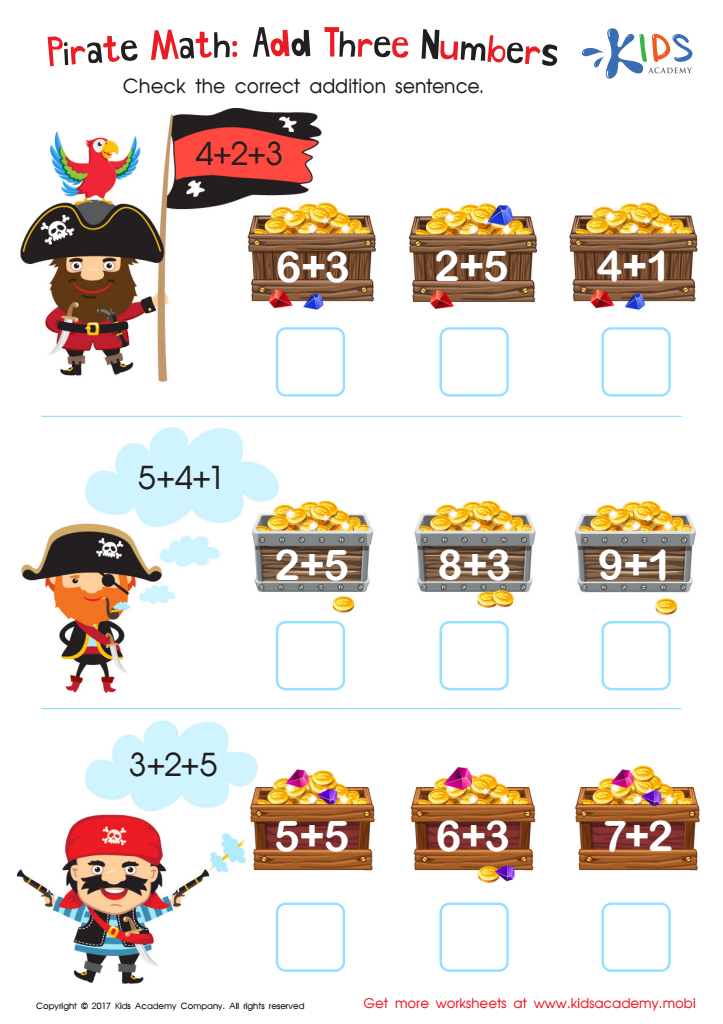

Pirate Math Printable
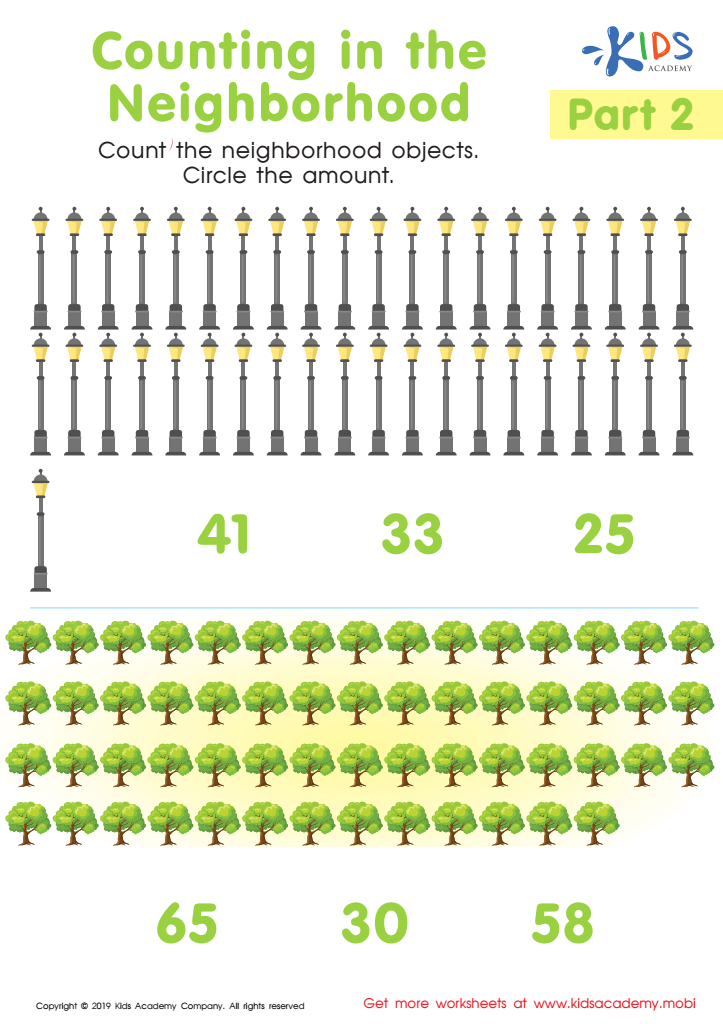

Counting In The Neighborhood Part 2 Worksheet
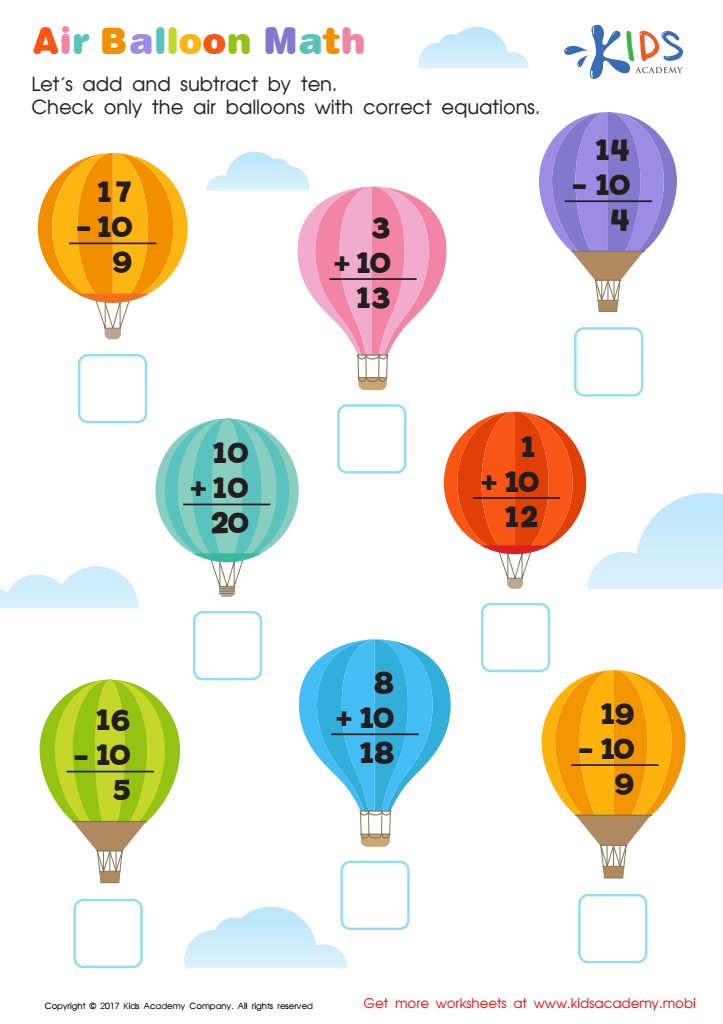

Air Balloon Math Worksheet
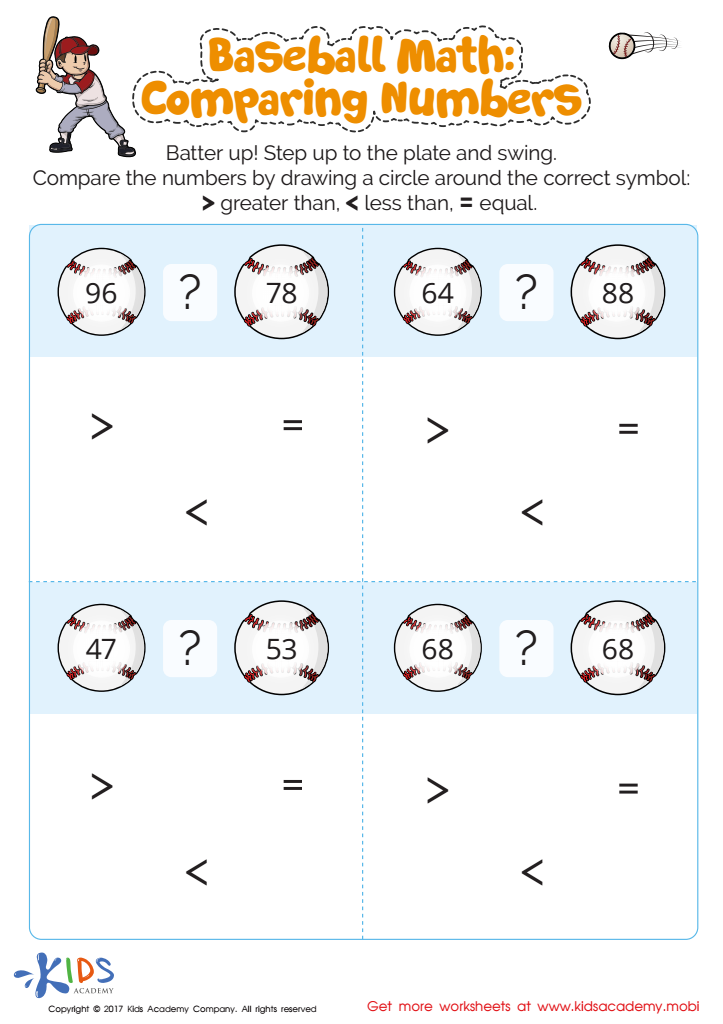

Compare Numbers Printable
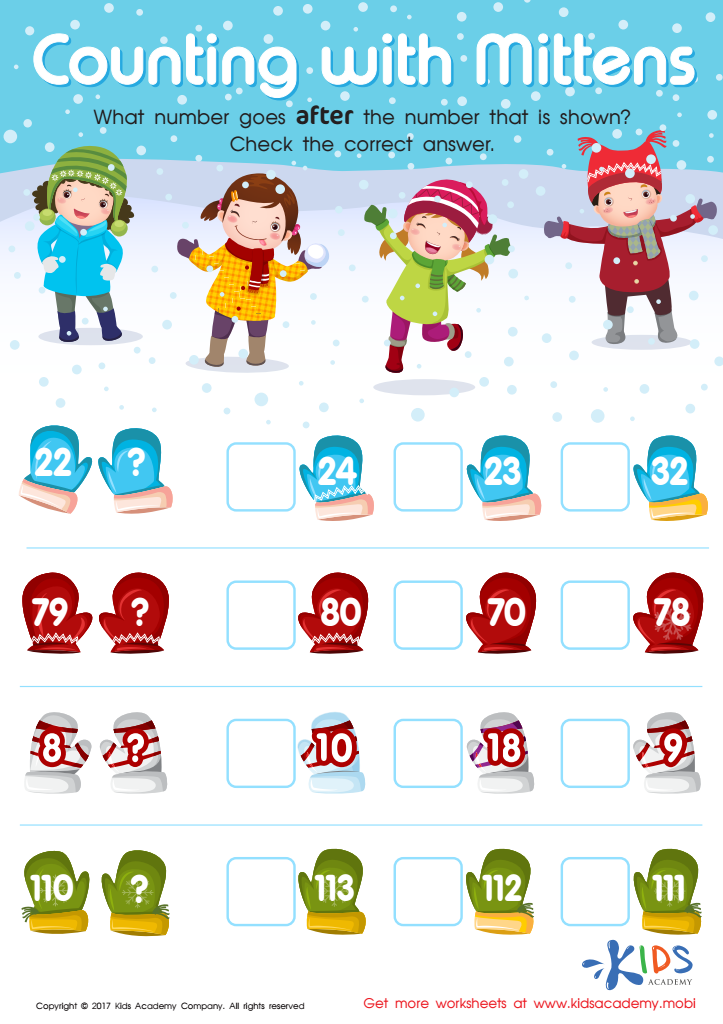

Counting with Mittens Worksheet
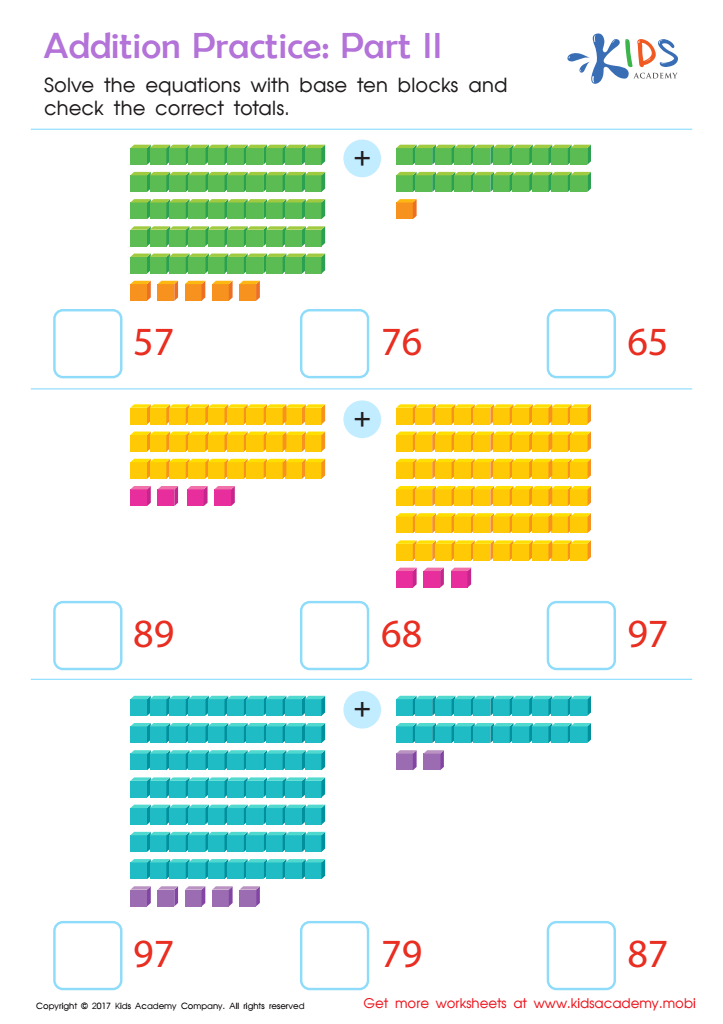

Addition Practice Sheet: Part 2
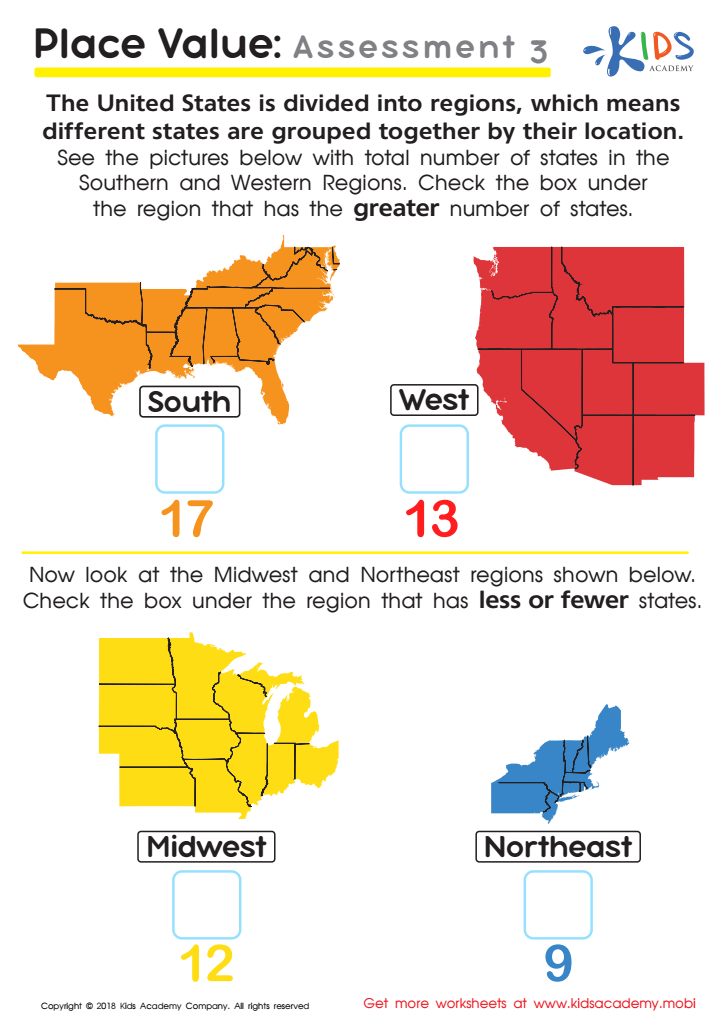

Place Value: Assessment 3 Worksheet
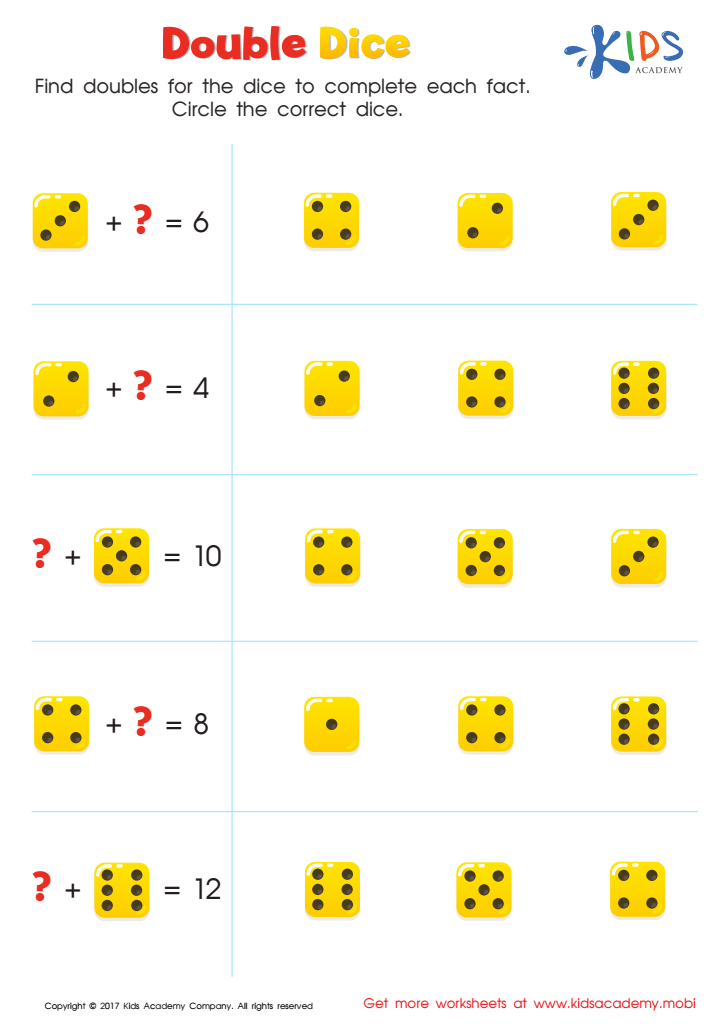

Addition Facts: Double Dice Worksheet
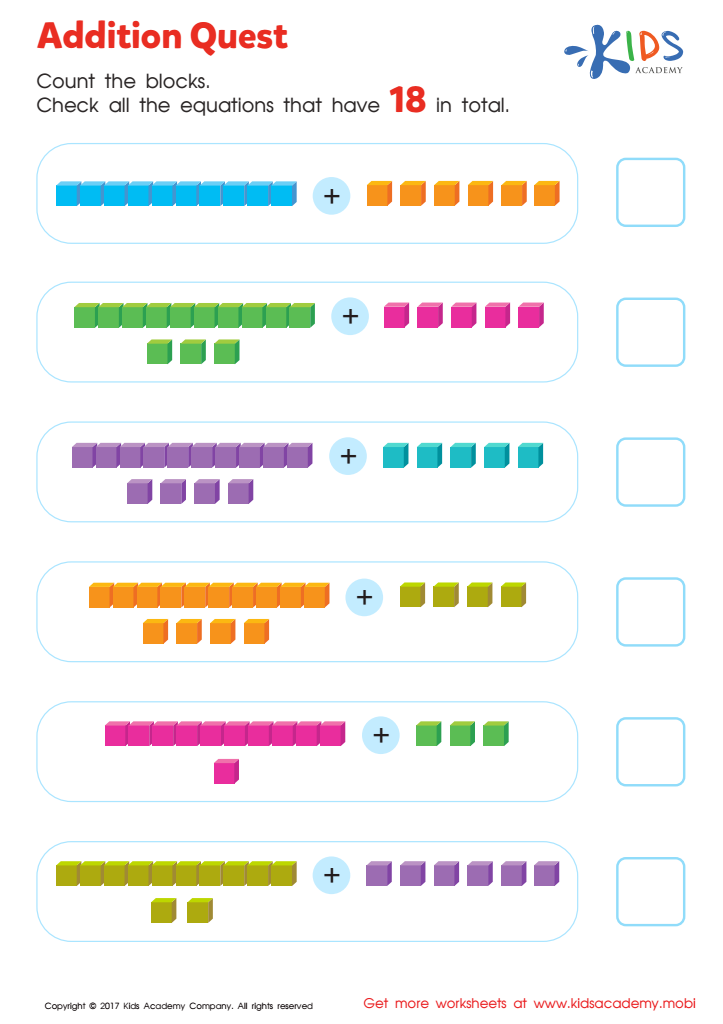

Addition Quest Worksheet: Part 2
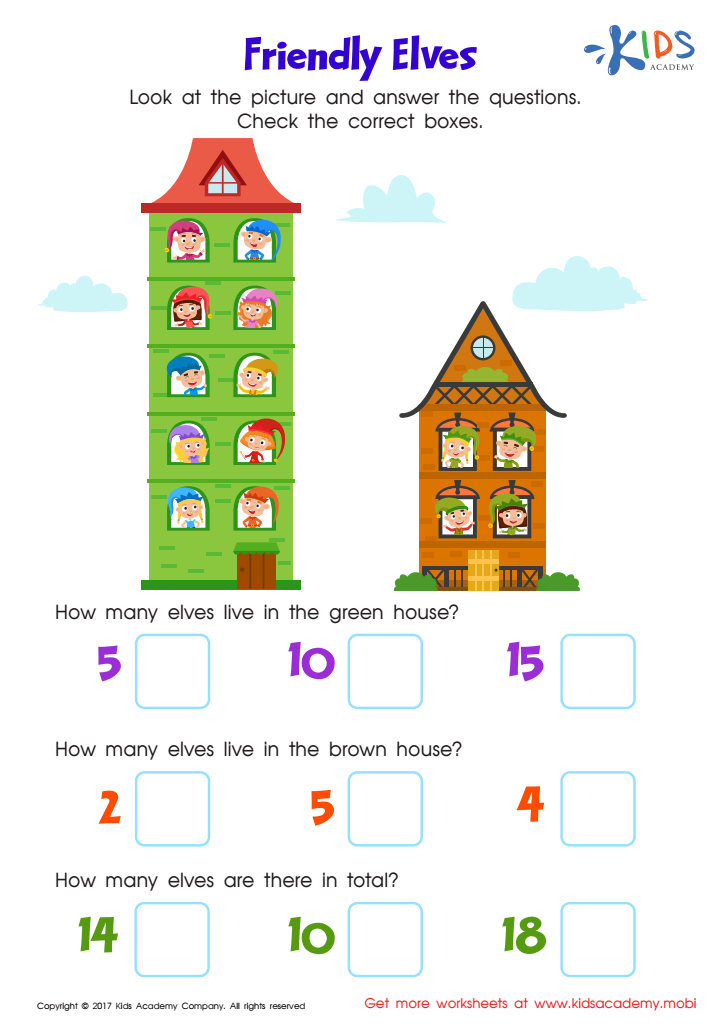

Place Value: Friendly Elves Worksheet
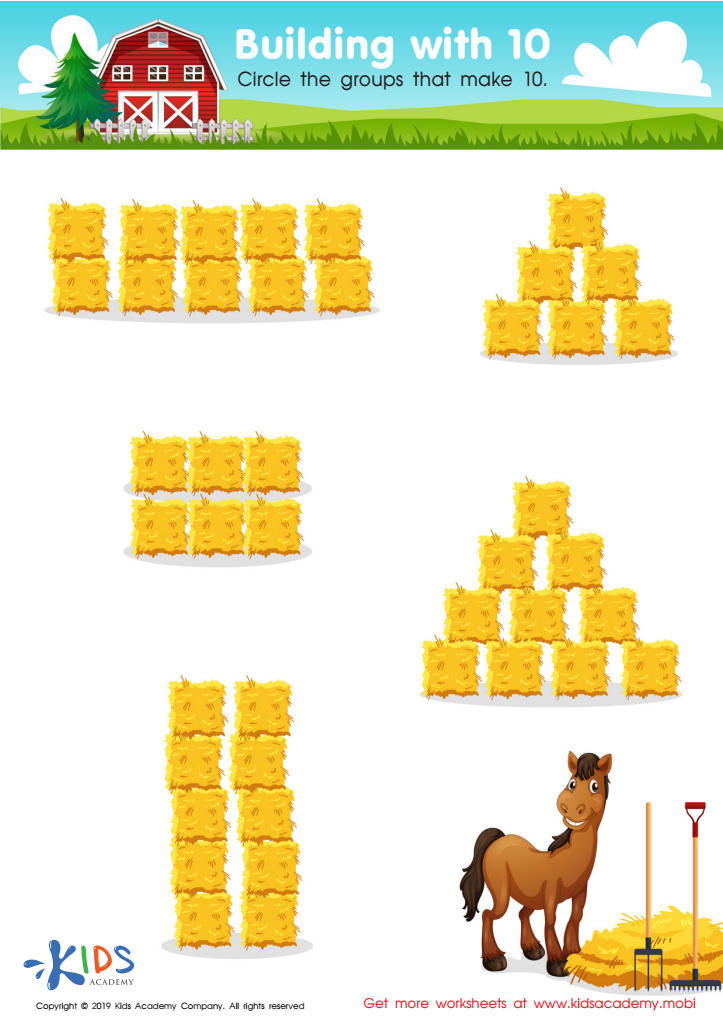

Building with 10 Worksheet
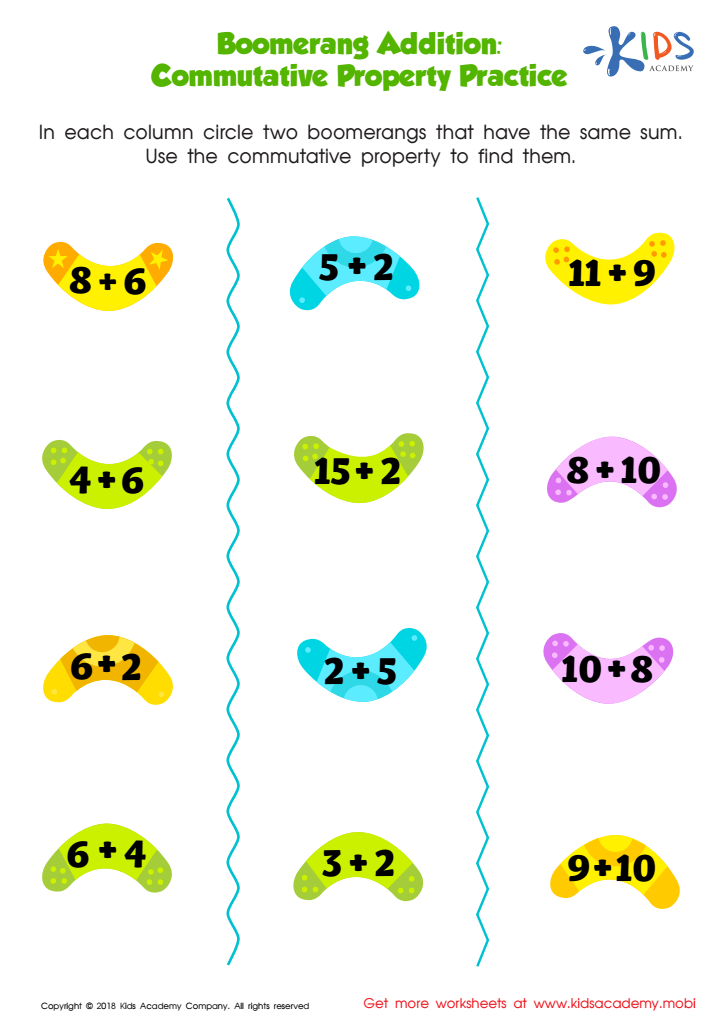

Boomerang Addition Worksheet
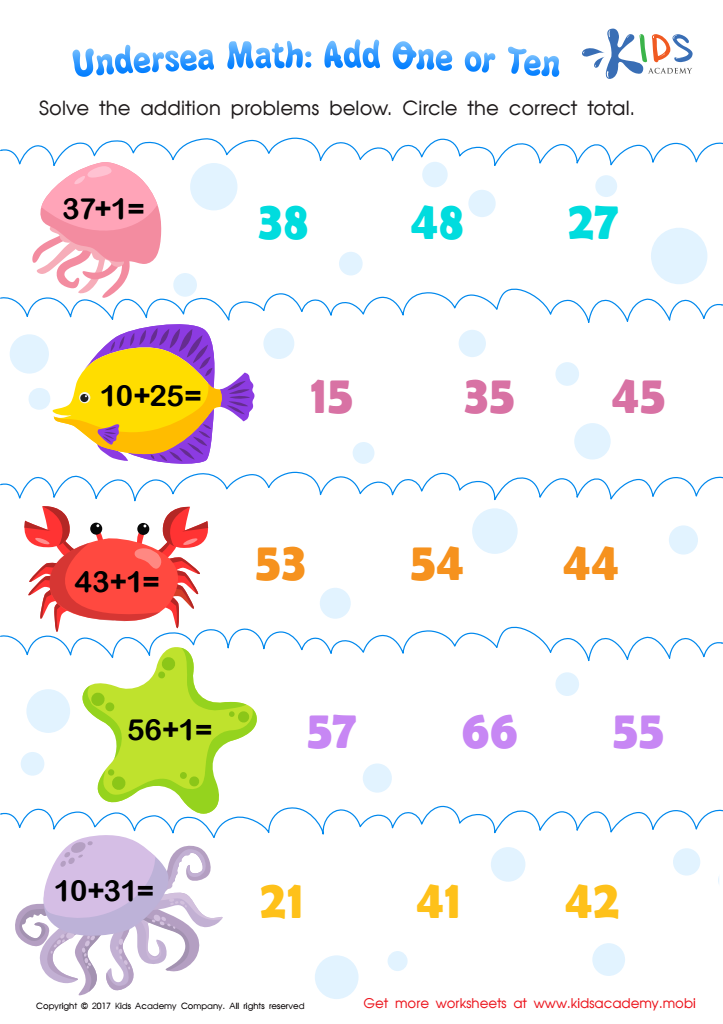

Undersea Math Worksheet
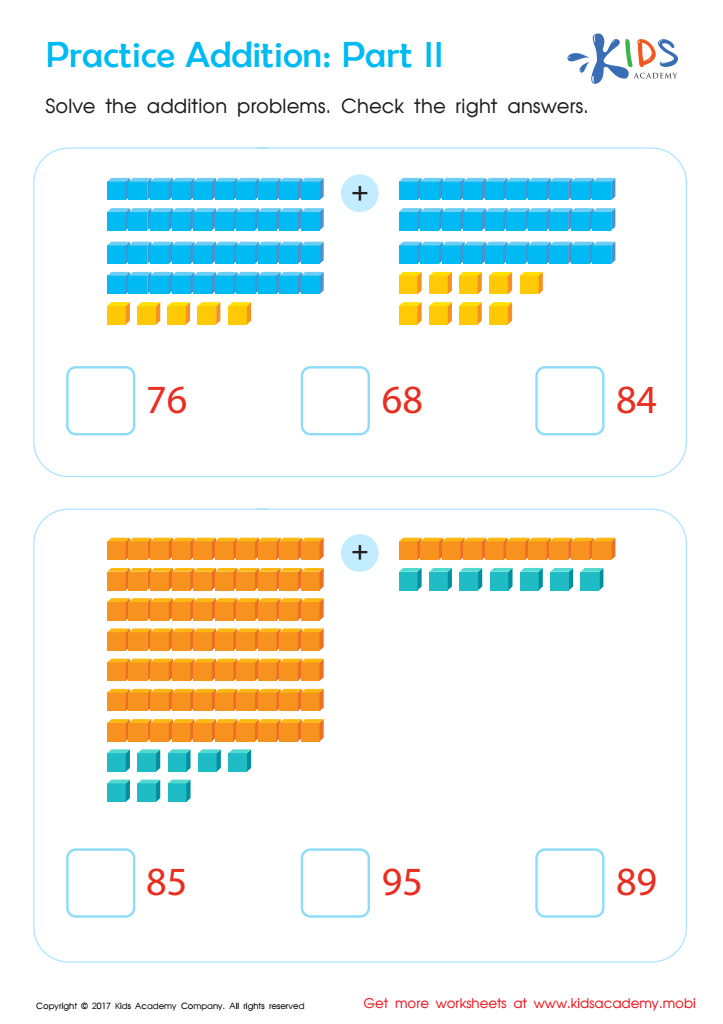

Practice Addition: Part 2 Worksheet
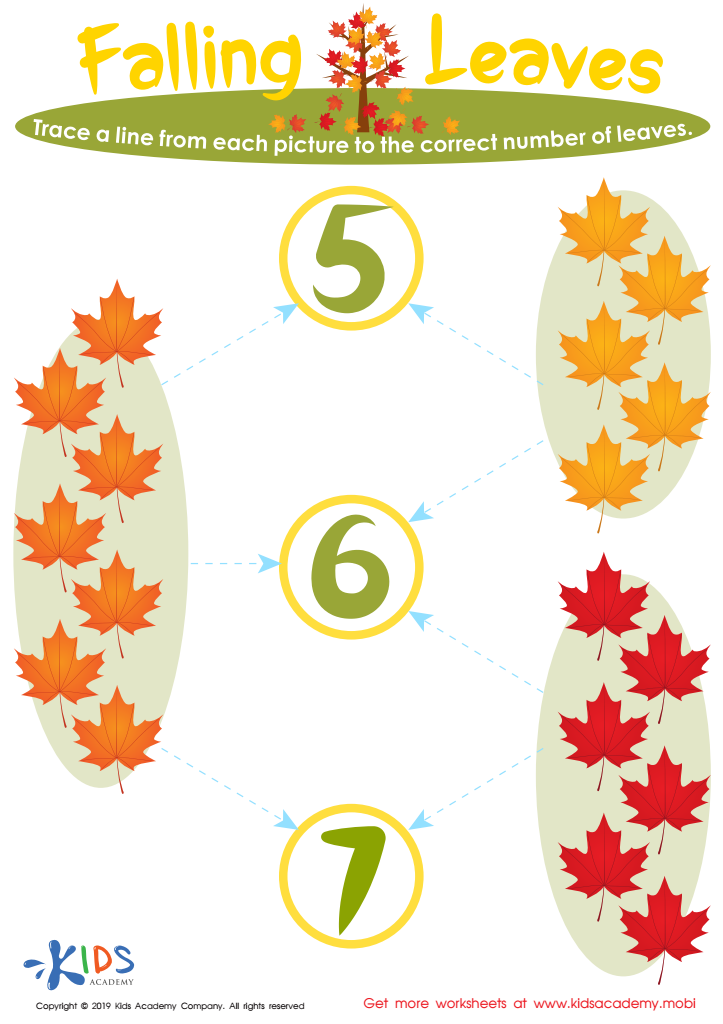

Falling Leaves Worksheet
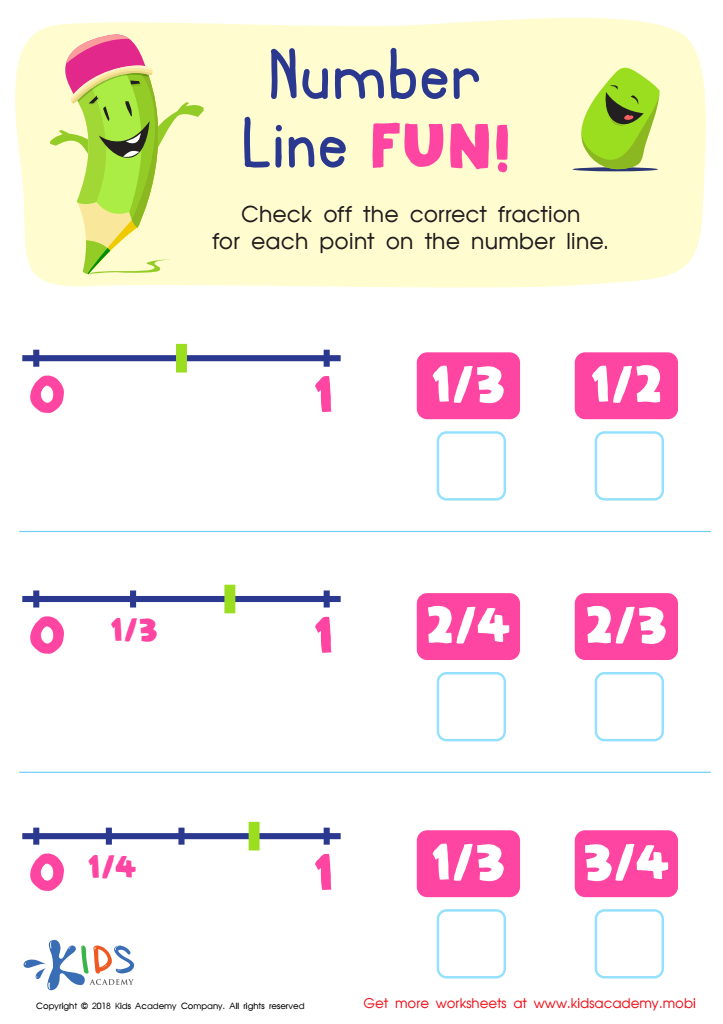

Number Line Fun Worksheet
Addition practice with normal numbers is crucial for children aged 4-8 as it provides foundational skills essential for their mathematical development. At this early stage, children are shaped by their educational experiences, and mastering addition sets the groundwork for more complex mathematical concepts later on.
Parents and teachers should prioritize addition practice because it enhances cognitive skills, including logical thinking and problem-solving abilities. Children learn to manipulate numbers, fostering a sense of confidence in their mathematical skills, which is vital for creating a positive attitude toward learning. Furthermore, addition practice promotes fine motor skills through writing numbers and using manipulatives, adding an engaging tactile element to learning.
Incorporating fun, age-appropriate activities can make addition feel less daunting and more enjoyable, helping children to retain information better. Additionally, understanding addition not only aids in academic success but also applies to real-life situations, empowering children to develop practical life skills such as budgeting and planning.
By encouraging consistent and fun addition practice, parents and teachers can help children build a strong mathematical foundation, promoting a lifelong love of learning and equipping them for future educational endeavors. Ultimately, this investment in their early education pays off in confidence, competence, and a positive mindset toward mathematics.
 Assign to My Students
Assign to My Students
















